Updated September 2025.
The Jeffress Trust has announced the 2025 recipients of its Awards Program in Research Advancing Health Equity. Congratulations to the awardees!
Scroll on to see the 2023 and 2024 recipients.
2025 Awardees
Partnership/Collaborative Establishment Awards
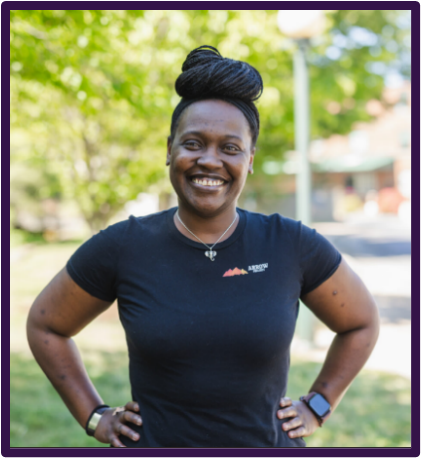
Sabrina Burress, MA HS, MA CMHC, LPC, NCC
ARROW Project
In partnership with Shenandoah LGBTQ Center, Life Works Project Inc. & Gypsy Hill House
This project aims to improve access to non-crisis mental health services for underserved communities, especially those that are low-income or marginalized, by using mobile health technologies to reduce barriers like distance, cost, and stigma. With support from the Jeffress Trust, the team will launch and sustain research that evaluates the accessibility, quality, and equity of mobile mental health care through mixed-methods studies. This funding will also support direct community engagement, data collection, and the development of recommendations for scaling services. By centering community voices, the project seeks to identify best practices, promote health equity, and build a replicable model for expanding mental health support across diverse populations.
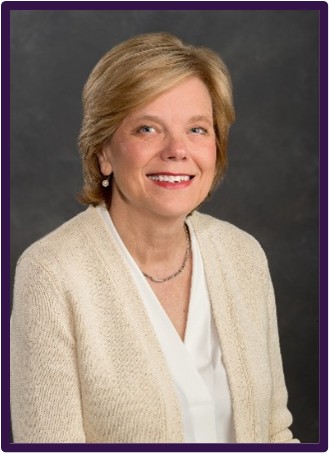
Sandra Dewar, PhD, RN, FAES, FAAN
Virginia Commonwealth University School of Medicine
In partnership with The Epilepsy Foundation
Uncontrolled epilepsy is unpredictable and highly stigmatized, affecting African Americans in the U.S. at three times the rate of Caucasians. This population faces greater barriers to care, lower treatment adherence, and reduced engagement in wellness practices, often due to low health literacy. A recent study by VCU’s epilepsy team found that not knowing others with epilepsy or discussing the condition contributes to isolation, lack of information, and lower quality of life. With support from the Jeffress Trust, the team will produce a professional video series featuring lived experiences of African Americans in Virginia with epilepsy. Community members will be compensated for their input, and the series will be tested in focus groups before its statewide launch—bringing visibility to a community that is often overlooked.
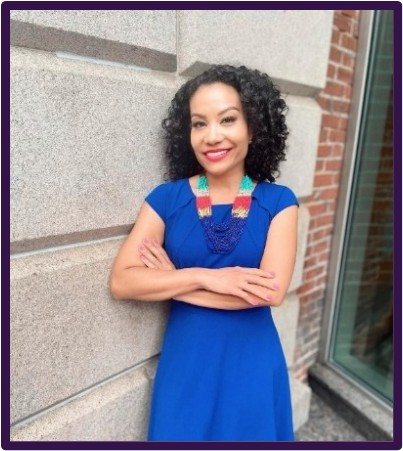
Evelyn B. Kelly, MPH
Institute for Public Health Innovation
In partnership with Prince William Health District (PWHD), Edu-Futuro, National Alliance on Mental Illness Prince William Chapter (NAMI PW)
In partnership with the Prince William Health District, Edu-Futuro, NAMI Prince William, and other local organizations, the Institute for Public Health Innovation (IPHI) will explore a culturally responsive model for sharing health information and addressing healthcare hesitancy among immigrant communities along Prince William County’s Route 1 Corridor. Building on the 2025 Community Health Assessment, the project will engage residents to identify root causes of health disparities through participatory mapping and feedback sessions. With support from the Jeffress Trust, IPHI will strengthen cross-sector collaboration, expand training, and elevate community voices to shape local health priorities. The project aims to improve access to care, enhance social supports, and create a replicable model for community-led health interventions.
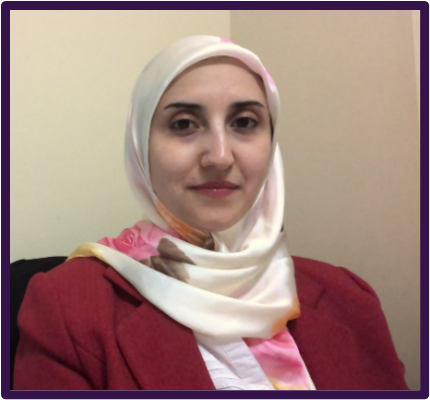
Reem Sharaf-Alddin, MD, MPH, CPH
CONRAD, Old Dominion University
In partnership with Loving Steps and Child Health Investment Program (CHIP)
Bacterial Vaginosis (BV) affects about 27% of pregnant women in the U.S., with African American women disproportionately impacted and also at higher risk for gestational diabetes, a contributing factor to BV. Untreated BV is linked to preterm birth, which can lead to long-term health issues for offspring. Despite its serious consequences, awareness and screening remain low, especially among African American women. To address this, the EMPOWER partnership—led by ODU and community organizations—will engage women in Eastern Virginia through education, surveys, interviews, and focus groups to identify socio-behavioral barriers to BV testing. Supported by the Jeffress Trust Partnership Collaboration Award, this initiative builds a sustainable community-academic partnership to promote maternal health equity, inform public health policy, and lay the groundwork for future research and action.
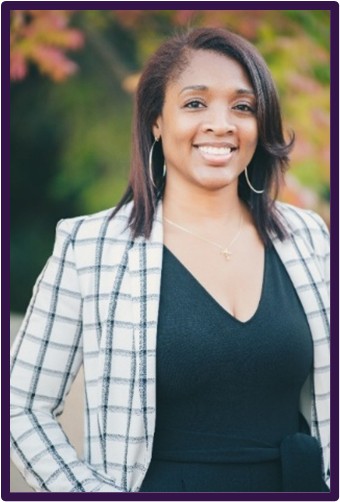
Arnethea Sutton, PhD
Virginia Commonwealth University School of Medicine
In partnership with First Baptist Church of South Richmond, Virginia Massey Comprehensive Cancer Center (MCCC) & Facts and Faith Fridays
Black Virginians experience the highest cancer mortality rate in the state, driven in part by limited access to timely, quality screening and the lingering effects of the COVID-19 pandemic on screening recovery. To address these disparities, VCU Massey Comprehensive Cancer Center and First Baptist Church of South Richmond are partnering to develop a faith-based cancer screening navigation program that connects Black communities of faith—and surrounding neighborhoods—with essential screening services. With support from the Jeffress Trust Award, this initiative will build a sustainable, community-facing model for cancer education and navigation, strengthen partnerships, and lay the foundation for long-term efforts to reduce racial disparities in cancer outcomes.

Kenda Sutton EL
Birth in Color
In partnership with Virginia Commonwealth University & Creating Healthier Communities (CHC) & Lynchburg Hospital
Black women in the U.S. face the highest maternal mortality rate—more than twice that of white women—due to systemic issues like limited access to quality care, provider bias, and social determinants of health. To address these disparities in Virginia, Birth in Color is leading a community-academic partnership with CHC, Lynchburg Hospital, and VCU to develop and pilot a community-informed provider bias training. The project will establish a Community Coalition Board of Black birthing people, partners, doulas, and providers to guide the training and ensure it reflects lived experiences. With support from the Jeffress Trust, the team will implement the COLOR Theory framework, strengthen community engagement, and build a scalable model to improve maternal health outcomes and influence statewide policy.
Research Awards
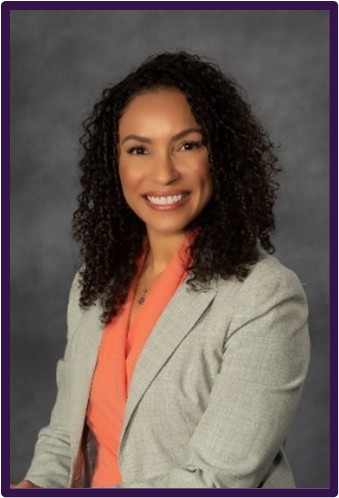
Katherine Tossas, PhD
Virginia Commonwealth University School of Medicine
In partnership with Chickahominy Indian Tribe and Tribal Health and Wellness Working Group
Building on the Chickahominy TRUTH Project, this initiative will expand to all 11 Tribal Nations in Virginia to investigate the root causes of persistent cancer disparities among Native Americans and identify solutions through community-based participatory research. Findings from the original project revealed the need to examine how structural barriers—like environmental pollution and healthcare inequities—shape beliefs about cancer and influence prevention efforts. With support from the Jeffress Trust Research Award, the Virginia Native Nations Against Cancer (VANNAC) project will collaborate with Tribal leaders to explore these drivers, train Community Health Workers, and develop culturally grounded strategies for cancer prevention and care. This award helps establish a sustainable, Tribal-led research infrastructure that centers Native voices and advances equity in cancer outcomes across generations.
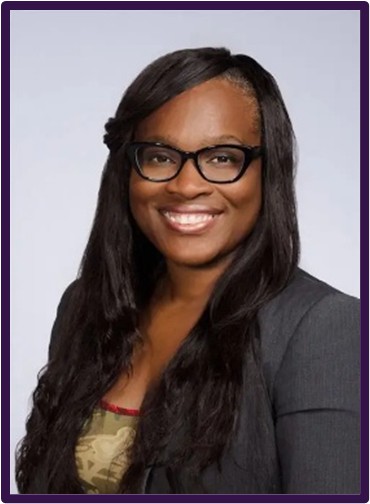
Shanteny Jackson, MA, CCHW, CSAC
Virginia Community Health Worker Association (VACHWA)
In partnership with Dr. Obasanjo
Community Health Workers (CHWs) play a vital role in improving health access in underserved communities, yet many face the same social and economic challenges as those they serve. This project explores how CHW training and certification can lead to stable careers and economic mobility for individuals from low-income backgrounds. With support from the Jeffress Trust Research Award, the Virginia Community Health Workers Association will study how certification opens pathways to sustainable employment while empowering CHWs to address health inequities through lived experience. This research will strengthen CHW-led organizations, expand access to care, and build a model for workforce development rooted in community health.
2024 Awardees
Partnership/Collaborative Establishment Awards
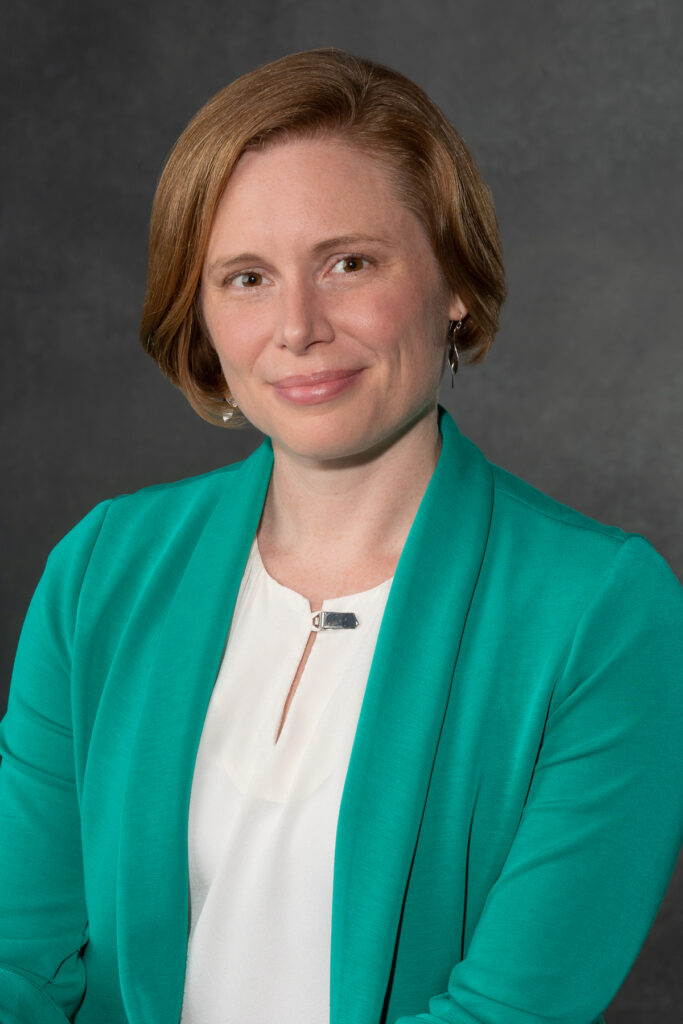
Caitlin Martin, MD, MPH
Virginia Commonwealth University
in collaboration with Urban Baby Beginnings, Rams in Recovery & OB MOTIVATE Clinic
Data demonstrates that structural racism is a key driver of large gaps in treatment continuity experienced by Black birthing individuals with substance use disorder in central Virginia. VCU and collaborators will develop and implement a patient navigation model specifically for Black birthing people with SUD. This model will incorporate peer recovery support specialists, doulas, and people with lived experience as Black birthing parents with addiction.
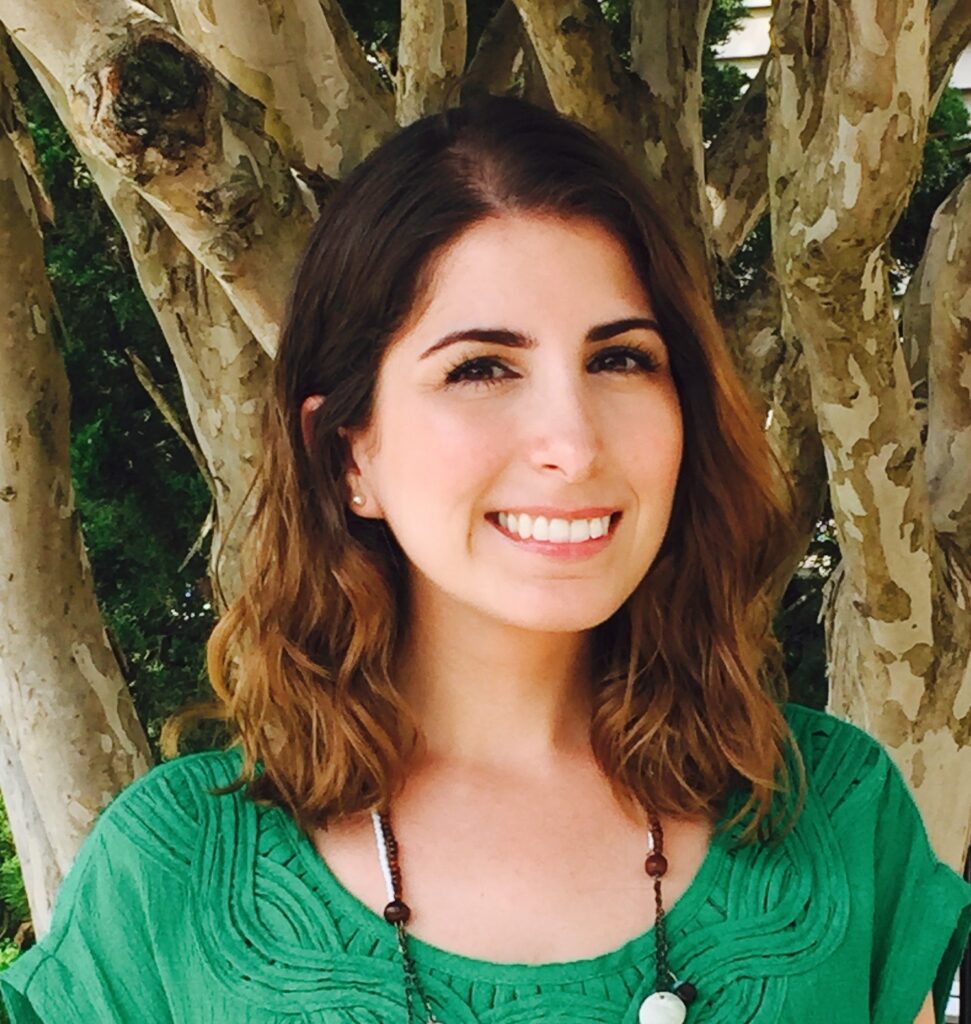
Gabriela León-Pérez, PhD
Virginia Commonwealth University
in partnership with Waymakers Foundation, Richmond Public Schools, the City of Richmond’s Office of Immigrant and Refugee Engagement & Virginia Department of Health
The mental health problems experienced by Latino immigrant youth in Richmond, Virginia are well-documented. To address these inequities, VCU and collaborators will create a community-academic partnership – the RVA Latino Youth Coalition. The project team will establish Youth and Parent Advisory Groups comprising Latino community members to advise the coalition, facilitate a community-informed strategic planning process, and conduct a participatory community assessment to identify the drivers of mental health inequities and existing mental health resources and services available to Latino youth in Richmond.
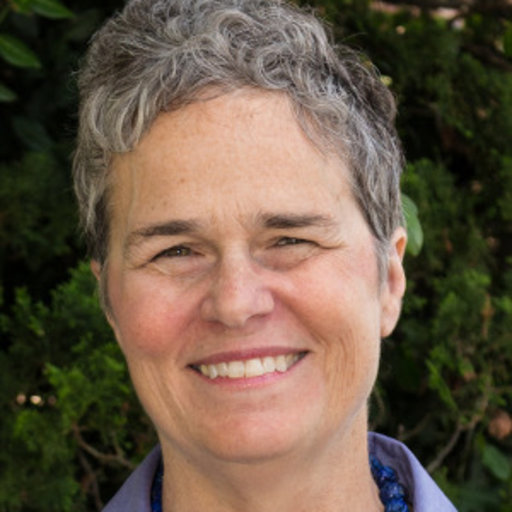
Carol Cleaveland, PhD
George Mason University
in collaboration with Gainesville-Haymarket Rotary Foundation & Georgetown South Community Foundation
Undocumented Latino immigrants experience pronounced health inequities, often exacerbated by a lack of health insurance. GMU and collaborators will establish a research consortium to improve access to preventative care for undocumented Latino immigrants by strengthening social networks and knowledge-sharing among community members. The team will develop a strategic plan, with the aim to deliver vaccines and preventative health services to 10,000 Latino individuals living in low-income neighborhoods.

Meaghan Butler
in collaboration with Blue Ridge Area Food Bank, Capital Area Food Bank, Feed More, Inc., Feeding Southwest Virginia, Fredericksburg Regional Food Bank, Foodbank of Southeastern Virginia and the Eastern Shore, Virginia Peninsula Foodbank
Led by the Federation of Virginia Food Banks, the Virginia Healthy Pantry Initiative (HPI) is a statewide movement of advocates and pantries committed to breaking the cycle of food insecurity and poor health. More than half of Virginia’s 1,100 pantries have already joined the Healthy Pantry Initiative. The Federation seeks funding to better understand the practices’ successes and challenges at scale and ensure equitable access for people and places most in need. Collaborators have committed to regular peer support, data sharing, and consistent evaluation practices with a vision to improve hunger and health outcomes for more than 800,000 Virginians facing hunger.
Research Award
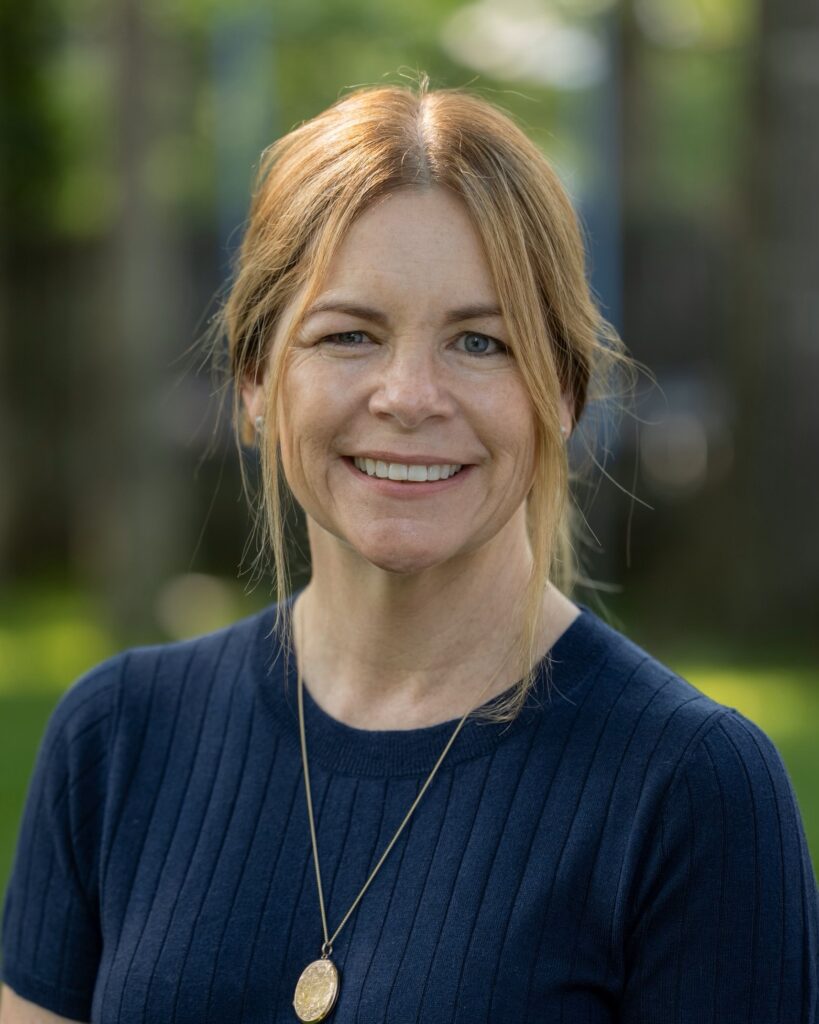
Sarah Holland
in collaboration with Virginia Tech and Virginia Community Health Workers Association
Mistrust in and subsequent avoidance of tap water has critical implications for health equity. The project will employ iterative cycles of participatory action research in geographically focused communities across Virginia that are most impacted by water inequities. Community health workers serving as water advocates will play an integral role in facilitating the research process, sharing findings back to community members, and (re)building trust in tap water. Acknowledging that water issues and solutions are highly localized, this project lays the groundwork for the development of a statewide network of communities that act, advocate, and engage in local decision-making to advance water security.
2023 Awardees
Partnership/Collaborative Establishment Awards
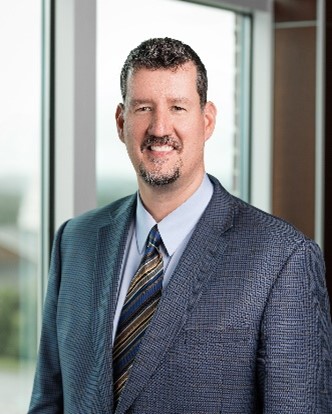
Matthew Loos, MD, FACS, MBA
Ballad Health, in partnership with Appalachian School of Law – Virginia Tech – STRONG Accountable Care Community
Despite the establishment of numerous MLPs throughout the U.S., there are few published studies on the impact of MLPs on healthcare and outcomes. This collaborative project establishes an Advisory Council to collectively study and develop MLP best practices for programmatic and coordinated community response. We anticipate the data will illuminate how health-harming legal needs are impacted through MLP intervention with free legal services to address social determinants of health (SDOH).

Sara Rothenberg, MPH
Eastern Virginia Medical School, in partnership with The Consortium for Infant and Child Health – SonShine and Rainbows Lactation – From the Start Holistic Doula Services – #757Breastfeeds
The project seeks to address and uproot structural racism that underpins maternal and child health inequities by centering Black voices, building community capacity, and decolonizing breastfeeding research. Through sustainable, respectful collaboration, this project will lay the groundwork for future research, publication, and more effective public health strategies for advancing maternal child health equity.

Shuntay Z. Tarver, PhD, MSW
Old Dominion University, in partnership with African American Creative Community Series – James Barry Robinson Institute – Hampton-Newport News Community Services Board
There is a critical need in Virginia to reduce opioid and substance use (O/SU) and overdose-related deaths. The project seeks to advance health equity by developing a culturally-informed, data-driven regional coalition. The desired outcome is to decrease O/SU and overdose-related deaths among Black and low-income families within the cities of Norfolk, Hampton, and Newport News, VA.
Research Awards
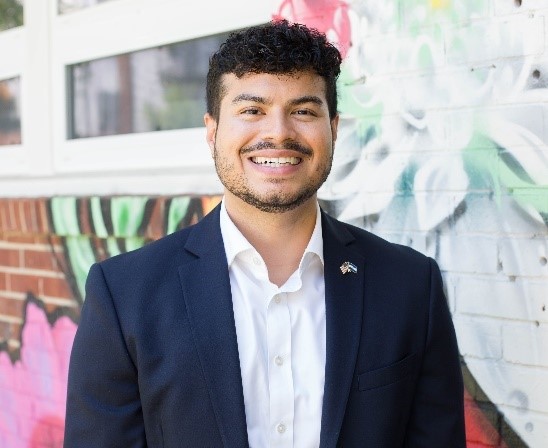
Freddy Mejia
The Commonwealth Institute for Fiscal Analysis, in partnership with Sacred Heart Center – Peter Paul Development Center – Virginia Poverty Law Center – Virginia Community Voice
In April 2023, Virginia will begin to review all Medicaid enrollees’ eligibility, a process called “unwinding” and start ending coverage for those found ineligible. The unwinding process will require enrollees to update contact information and submit all required paperwork in a timely fashion. Caught in the middle of this process are approximately 160,000 individuals and families who remain eligible but are most at risk of losing coverage because of administrative hurdles and/or language access issues. The current administration in Virginia has not shared its posture on the Medicaid redetermination process. This is concerning to advocates due to national research from the Department of Health and Human Services. Research estimates children, Black, and Latino individuals are most likely to be disenrolled while still being eligible for coverage.
At the core of this project are three goals:
- First, through research and analysis, act as a watchdog that brings accountability and an equity focused lens on a complex process that may leave individuals and families uninsured on account of technicalities.
- Second, drive education efforts to help as many people as possible weather the “unwinding” storm and preserve their health insurance.
- Third, leverage the research to change systems to improve the current redetermination process in the moment and create better health access programs, processes, and communications in the future.
Using a participatory research approach combined with analysis of data from EnrollVA and state agencies, and advocacy action we can achieve both meaningful research findings and changes in public policies. We plan to create and maintain a real-time dashboard that can inform decisions during the three year period. Additionally, we will disseminate findings with strategic communications and coordinate with our partners including members of the Collective Work coalition focused on racial justice and the Health Equity Action Leaders program.
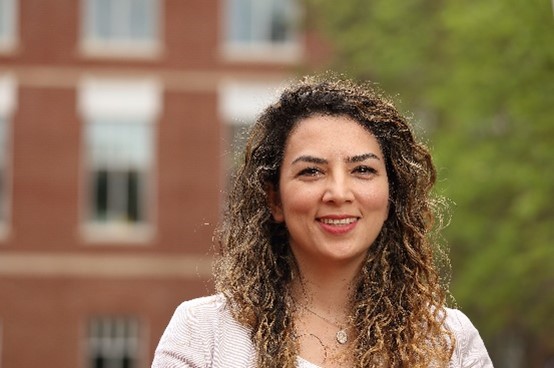
Sepideh Dolatshahi, PhD
University of Virginia
Obese Black women experience an increased risk of inadequate Gestational Weight Gain (iGWG) compared to White women within the same BMI groups. Importantly, obesity and iGWG are both associated with adverse pregnancy outcomes such as preterm birth, which in turn predispose the newborn to a myriad of early-life health complications. As such, concurrent higher prevalence of iGWG and obesity in non-Hispanic Black women points to distinct profiles of Social Determinants of Health (SDoH) that separately drive these risk factors to birth disparities.
The proposed study aims to dissect these two hypothesized distinct pathways of racial disparities from the root/trunk (SDoH) to the middle branches (perturbed baseline immunity and the immune remodeling) to the outer leaves (adverse clinical outcomes) of the tree. While sparse attempts to stratify the contributors to obesity and iGWG as they relate to pregnancy outcomes have been published, these studies are essentially lacking in the Virginia. Moreover, African Americans have been underrepresented in immunological studies of pregnancy.
To address these limitations, we will use innovative systems biology and data-driven statistical modeling approaches to examine a unique cohort of racially diverse pregnant women of Virginia. By combining SDoH information with high-plex maternal and placental measurements, we anticipate that we will identify novel social and immune axes that may inform the design of preventative, diagnostic, and therapeutic strategies that will improve pregnancy outcomes.
About the Trust
The Thomas F. and Kate Miller Jeffress Memorial Trust, founded in 1981 by Robert M. Jeffress in memory of his parents, is guided by its mission to benefit the people of Virginia and their research in chemical, medical, or other scientific fields. Since its founding, the Jeffress Memorial Trust has been a steadfast benefactor in support of scientists and research across the state of Virginia supporting mathematical modeling/simulations and analytics in bioinformatics, astrophysics, mathematical biology, drug development, and material science. To further the mission of the Jeffress Trust to benefit the people of Virginia, the program was changed in 2022 to the Jeffress Trust Awards Program in Research Advancing Health Equity.
